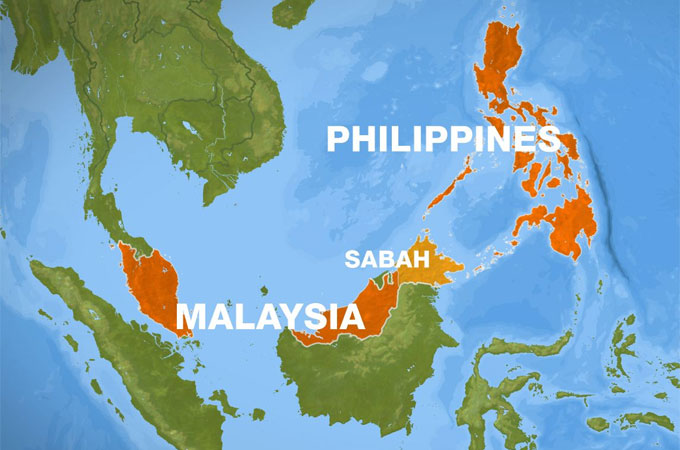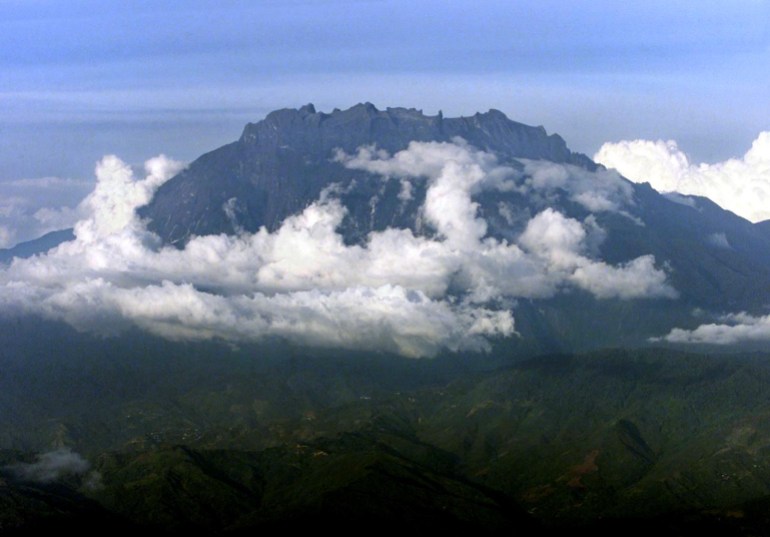Malaysian state’s top lawyer declares Borneo carbon deal dead | Environment News
A controversial carbon trading deal in Malaysian Borneo worth an estimated $76.5bn appears to be all but dead after being declared illegal by the state’s top lawyer, unfeasible by scientists, and unsellable by carbon trading experts.
The Nature Conservation Agreement (NCA) ostensibly protects 2 million hectares (4.9 million acres) of rainforest in the state of Sabah from logging for the next 100 years by selling the carbon stored in the trees, plants, soil and rivers to commercial polluters looking to offset their emissions.
More than half of threatened forests in Southeast Asia “could be protected as financially viable carbon projects” that “can deliver multiple benefits to society,” according to a study published earlier this month in the scientific journal Nature Sustainability.
But a months-long investigation by Al Jazeera showed that the NCA was hammered out in secrecy, and with what activists and Indigenous leaders said was no due diligence or consultation with landowners.
Al Jazeera’s investigation also showed that a Singaporean shell company with no obvious experience in carbon trading stood to earn up to $23bn from the deal.
The NCA was signed on behalf of the State of Sabah by Chief Conservator of Forests Frederick Kugan, according to a copy of the document seen by Al Jazeera. Kugan signed the deal in the presence of Chief Minister Seri Panglima Haji Hajiji bin Noor and Deputy Chief Minister Jeffrey Gapari Kitingan, who provided their signatures as witnesses, according to the document.
A week after Al Jazeera’s investigation was published on February 2, Nor Asiah Mohd Yusof, the attorney general for Sabah, said the state would not honour the agreement.
“Recent reporting by Al Jazeera and the Sarawak Report has raised a number of issues and concerns. In short, the NCA in its present form is legally impotent,” Yusof said in a statement that described the terms of the deal as “unfair” and “absurd”.
“Any agreement, scheme, device or arrangement that is contrary to Sabah’s carbon sovereignty, including the proposed NCA, will not be permitted to proceed,” the attorney general said.
 Malaysia’s Sabah state is home to vast areas of protected forests
Malaysia’s Sabah state is home to vast areas of protected forestsMeanwhile, Warisan, the largest opposition party in Sabah, has filed a report about the NCA with the Malaysian Anti-Corruption Commission.
Kitingan has publicly denounced Al Jazeera’s investigation, labelling it “distorted”, “irresponsible” and “defamatory”, and threatened to sue the publisher.
Kitingan had previously told Al Jazeera consultation with the Indigenous population was “not an issue” because they had already been consulted when the area became a forest reserve in 1968.
But in a series of recent messages sent to Al Jazeera via the messaging service Whatsapp, the deputy chief minister, who is an Indigenous Sabahan, claimed Indigenous communities were consulted.
“Many indigenous representatives were at the public briefings. We, as leaders, also represent our constituencies that are mostly Indigenous voters,” he wrote, while also threatening to expose the whistleblower at the centre of the story.
“Do you think this particular person is genuinely concerned about the Indigenous people, or his politics and the people manipulating him? Sooner or later this political collusion will be proven in court.”
Kitingan also said the deal had nothing to do with “unproven accusations” about his time as director of the Sabah Foundation, a 1.1-million-hectare (2.7-million-acre) logging concession created in the 1960s with the stated goal of promoting educational and economic opportunities for people in Sabah.
An audit by Pricewaterhouse in 1994 discovered about $1bn missing from the Sabah Foundation’s coffers between 1986 and 1993, according to a claim by former Malaysian Prime Minister Mahathir Mohamed cited in Why Governments Waste Natural Resources, a book by American economics professor William Ascher.
Kitingan said he had never witnessed such an audit during his time at the foundation but heard about “the insinuation” from Mahathir.
“But since it was raised up again, I have requested the Sabah Foundation to give me all the audit reports while I was the director of the Sabah Foundation,” he said.
NGO report
The NCA in its current form is scientifically unsound, according to a report commissioned by the Carbon Sovereign Sabah campaign, a coalition of nine NGOs and research organisations opposed to the NCA.
The NCA will operate in pre-existing “Totally Protected Areas” Sabah is already obligated to conserve and “would not be saleable under the NCA”, according to the report.
The NCA includes a clause that proposes the restoration of 50,000 hectares (123,550 acres) of degraded forest in the first two years of the contract. But the technical and logistical impediments for “restoration on this scale, in mostly remote locations, would be extreme,” requiring 10 million tree seedlings, extensive site-species matching assessments and road construction for access, the report said.
The cost would also be prohibitively expensive, at about $125m for the first five years, according to the report, which described the estimated revenues in the deal as “highly inflated and not evidence-based.”
“I understand Jeffery Kitingan is pushing for a steering committee to be formed to push the NCA through,” Cynthia Ong, founder of the Land Environment Animals People, an NGO in the Carbon Sovereign Sabah campaign, told Al Jazeera. “But we believe the NCA is already dead.”
Jeremy Bayard, the founding partner of Pioneer Natural Capital, an Australia-based investment management company that specialises in carbon capture projects, said the negative press surrounding the NCA would likely spook potential buyers.
 Activists say the Nature Conservation Agreement in Sabah, Malaysia lacks transparency [Bazuki Muhammad/Reuters]
Activists say the Nature Conservation Agreement in Sabah, Malaysia lacks transparency [Bazuki Muhammad/Reuters]“The carbon capture market around the world is booming as countries and industries everywhere sign on to move to carbon neutrality,” Bayard told Al Jazeera.
“But the integrity of the ‘offset’ is what is most important. How do investors know the projects are what they claim to be and that they are actual offsets that have been resold three or four times? Often they don’t, which is why there is such a huge discrepancy in carbon pricing globally.”
The more rigorous the structure, the more attractive carbon credits are to legitimate investors, Bayard said, which is why carbon credits in countries like Australia with bonafiable carbon trading regimes are more expensive.
“Would Nike or Reebok buy shoes at a factory in Asia that uses child labour?” he asks. “Of course not. And once you’re accused of child labour, it’s a stigma you will always carry. Legitimate companies will steer clear of this particular project, especially when there are so many credible alternatives for them to offset their carbon with.”
Sam Fankhauser, a professor of climate economics and policy at the University of Oxford, told Al Jazeera carbon offsets could be part of the solution to climate change “if done properly”.
“But sadly, the sector is under-regulated and too many dubious or even detrimental deals slip through the net,” Fankhauser said. “We desperately need tighter regulation to bring credibility and integrity to this market. Until we have this, calling out bad behaviour is essential, and can deter bad projects.”





Pingback: ai nude